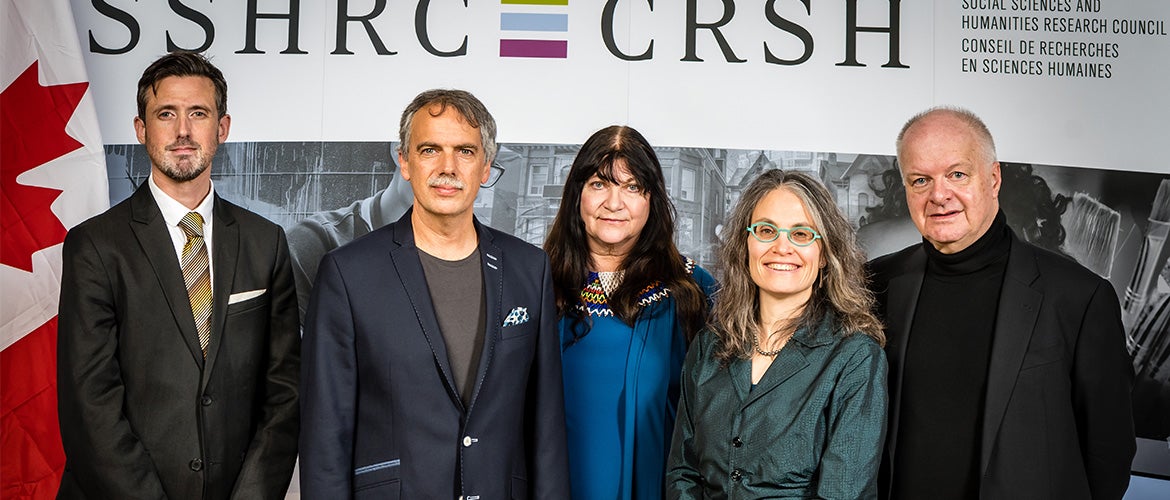
On December 4, the president of SSHRC, Ted Hewitt, presented the 2019 SSHRC Impact Awards to the five winners at a ceremony held at the National Arts Centre in Ottawa. Government officials, policy-makers, academics, and other thought-leaders came from across the country to celebrate the significant contributions of these exceptional researchers to their research fields and their impact on society—nationally and internationally. As part of the awards ceremony, the 2019 winners of the annual Storytellers contest presented their winning submissions highlighting the impact of SSHRC-funded research projects.
This year’s Impact Award winners are:
- Gold Medal—Will Kymlicka, Queen’s University
- Talent Award—Jake Pyne, University of Guelph
- Insight Award—Leah F. Vosko, York University
- Connection Award—Robert Jan van Pelt, University of Waterloo
- Partnership Award—Marianne Ignace, Simon Fraser University
Cultural historian and author Robert Jan van Pelt’s deep dive into the history and architecture of Auschwitz has taken concrete form in the much-celebrated installation, The Evidence Room. The installation, first exhibited at the 2016 Venice Architecture Biennale, is a forensic examination of architectural details that prove Auschwitz was designed as an extermination camp. The Evidence Room sums up what van Pelt considers his crowning achievement: serving as expert witness in the 2000 libel suit brought by Holocaust denier David Irving against scholar Deborah Lipstadt and Penguin Books.
Straddling scholarship, law and art, the exhibit draws on a 750-page report that van Pelt submitted to the High Court of England and Wales. The landmark case was “a crucial event in the battle of Holocaust denial,” he says. By proving to the High Court and a 2001 Appeal court that Auschwitz was an extermination camp, “I put my SSHRC-funded research, motivated initially by personal interest, into the service of the public good.”
This research and an account of its presentation in court was reworked in The Case for Auschwitz: Evidence from the Irving Trial. Published in 2002, the book is considered one of the founding texts of forensic architecture, a discipline encompassing architecture, technology, history, law and human rights. SSHRC has funded this research since 1990.
The trial was also the basis for the 2016 film, Denial, one of many films and documentaries that draw on van Pelt’s work.